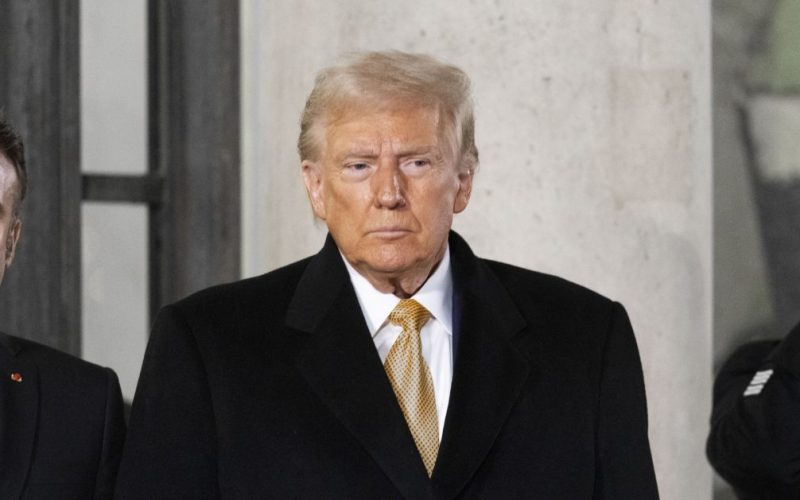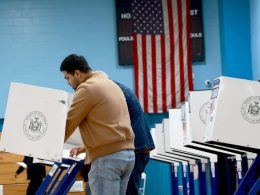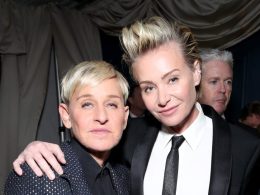President-elect Donald Trump’s election victory doesn’t wipe the slate clean in Manhattan’s courthouses, legal officials said Tuesday.
In new court filings, the Manhattan district attorney’s office asked state Supreme Court Justice Juan Merchan to reject Trump’s bid to toss the verdicts in his hush-money case and dismiss the underlying indictment. They claim his legal arguments — which include that the decision by voters should override that of a jury — were based on nonexistent law.
“There are no grounds for such relief now, prior to defendant’s inauguration, because President-elect immunity does not exist,” Assistant District Attorney Chris Conroy wrote. “And even after the inauguration, defendant’s temporary immunity as the sitting President will still not justify the extreme remedy of discarding the jury’s unanimous guilty verdict and wiping out the already-completed phases of this criminal proceeding.
“At most, defendant should receive temporary accommodations during his presidency to prevent this criminal case from meaningfully interfering with his official decision-making.”
Meanwhile, lawyers for the New York attorney general rejected a request from Trump lawyer John Sauer to stop pursuing their civil fraud case and the $454 million judgment they won against him earlier this year.
They also said Trump’s team had provided no legal basis for the request.
“Mr. Trump’s upcoming inauguration as the next President of the United States has no bearing on the pendency of defendants’ appeal in this action,” Deputy Solicitor General Judith Vale wrote, noting the case was unrelated to his presidency.
“Presidents do not have immunity from civil lawsuits arising from unofficial conduct, and such lawsuits may proceed while the President is in office.”

In May, Trump was found guilty of committing 34 felony counts of falsifying business records in a scheme to hide lurid information about his past from 2016 voters.
The historic case designated Trump as the first and only U.S. president to be found guilty of breaking the law. It went on trial several months after Trump, his sons, Don Jr. and Eric, and former top company executives Allen Weisselberg and Jeffrey McConney were found civilly liable for falsely inflating the value of Trump’s namesake properties by hundreds of millions of dollars.
Trump is awaiting a mid-level appeals court’s decision on his appeal of his civil fraud case outcome.

Getty Images/AP
Trump Org’s Alan Weisselberg ((left) and Jeffrey McConney. (Getty Images/AP)
He can’t appeal the verdicts in his criminal case before sentencing, which has been postponed three times. Before and after his election win, he asked Merchan to throw out the case based on the Supreme Court’s ruling on presidential immunity — which grants presidents sweeping protections from criminal prosecution for “official” acts — in still-pending requests.
Trump has claimed the continuance of the criminal proceedings will impact his ability to govern, among other arguments — like comparing his plight to that of recently pardoned Hunter Biden.
In their opposition to his post-election dismissal motion, prosecutors reiterated that Trump is not immune from prosecution for the hush money scheme that related to his personal life. Granting his requested relief, they said, “would effectively give him immunity beyond his presidential term for his unofficial criminal conduct.”

They said Merchan had several options to keep the conviction intact, including postponing sentencing until after Trump’s second term or agreeing to take jail off the table.
Merchan could also adopt the so-called “Alabama rule,” prosecutors wrote, by proceeding as the court typically does when a defendant dies between being found guilty and sentenced. In such a case, a judge will place in the record a note communicating the conviction “removed the presumption of innocence but was neither affirmed nor reversed on appeal because the defendant died” — or in Trump’s case, became president.
“On the one hand, this remedy would prevent defendant from being burdened during his presidency by an ongoing criminal proceeding,” Conroy wrote. “On the other hand, this remedy would not precipitously discard aspects of this criminal proceeding that predated defendant’s presidency, including the meaningful fact that defendant was indicted and found guilty by a jury of his peers.”
Prosecutors also argued “overwhelming” evidence of Trump’s guilt and his conduct during the case — “which is consistent with his long history of threatening, abusing, and attacking participants in other legal proceedings in which he is involved” — weighs heavily against dismissal.
It’s not clear when Merchan will rule.
Originally Published:








